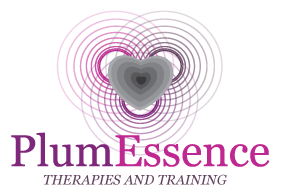This is the 13th in a series of blogs, using answers I used to pass Mental Health qualifications. This short blog helps describe some short ideas on how to manage anxiety.
The next series of blogs will give some understanding of phobias.
Anxiety is a massive topic, and of course, it affects different people in different ways. I strongly believe there is no one-size-fits all approach to managing anxiety, the main reasons why I’m not a massive advocate of medication. I prefer to consider natural, healthy ways to recognise and manage anxiety, tailoring each treatment and therapy to suit each individual.
Three examples of self-help for anxiety.
Vision Boards
Vision boards and Visualisation are tools that help someone have something positive to focus and concentrate on. A vision board can contain words or pictures that help give someone something to believe in, or look forward to. Visualisation takes practise but it helps the person ‘feel’ the positive outcomes of what they want to achieve, not just see it.
Meditation and Mindfulness
Meditation and Mindfulness are mind management techniques that can be learnt through using apps, YouTube, or through a therapist or self-help group. Both help to calm the mind, the breathe and the heart rate. While meditation can help empty the mind, mindfulness allows for the flow of positive thoughts.
CBT and NLP
CBT and NLP are tools and techniques that can be learnt from a therapist, and once mastered, can easily be applied in any place at any time. They can be drawn upon immediately they are needed, for instance when anxiety sets in.
Three enjoyable activities which may help a person manage anxiety.
Gentle exercise
Gentle exercise, especially in nature, is now scientifically proven to help reduce heart rates, blood pressure, boost the immune system, ease depression and relieve anxiety-related conditions. Exercise does not have to be difficult or a chore to be enjoyable, a gentle stroll along a beach, along a canal or river, or just around a housing block can be a great start and does not cost anything. Swimming and cycling are other great examples of exercise that can be gentle.
Crafting
Crafting is also proven to reduce anxiety and other associated mental health disorders. It can be from simple sketching and painting, and even colouring in books to start with, and can be enhanced to tasks that can be learnt such as sewing, knitting and pottery, to name only a few. Having something you have made, at the end, induces a sense of pride and having achieved something.
Involvement
Becoming involved in some sort of social activity could help, whether that is a local self-help and support group, to attending a local education place to learn something new. Even joining a walking group could help with the exercise as there will be people to help encourage, support and motivate, which can also increase confidence and self-esteem, all helping to reduce anxiety.
Local resources and treatments:
Check in your local area to see if there is some support and community groups available for the specific concerns you may have. These could be local authority, private business or charity operated and could be available at all sorts of times and days.
There could be number of therapists that can help, including psychotherapy and counselling, but also treatments such as Aromatherapy massages, Reiki, Hypnotherapy and NLP as well as many others.
Meditation, Mindfulness and Yoga classes can all help with reducing heart rates, anxiety as a whole and help the person to focus their mind on the task, which can provide temporary respite and long-term benefits with continued practise.
See you GP to consider prescribed medication. The GP should help someone to talk about their concerns and be provided with medication to help calm. The medication should be considered a short-term and temporary measures as there is more indication of prescribed medication being addictive and people becoming reliant on it, as well as potential harmful side effects.
Tracey of PlumEssence Therapies and Training is a qualified stress management consultant, mental health first aider, hypnotherapist and body work therapist focusing on helping reduce and alleviate concerns connected to both physical and emotional pain. Tracey is also a teacher and trainer, delivering workshops and accredited mental health courses.
Tracey is available for a no-obligation chat to see how we could work together on 01889 808388 or tracey@plumessencetherapies.co.uk

One thought on “How to Manage Anxiety”